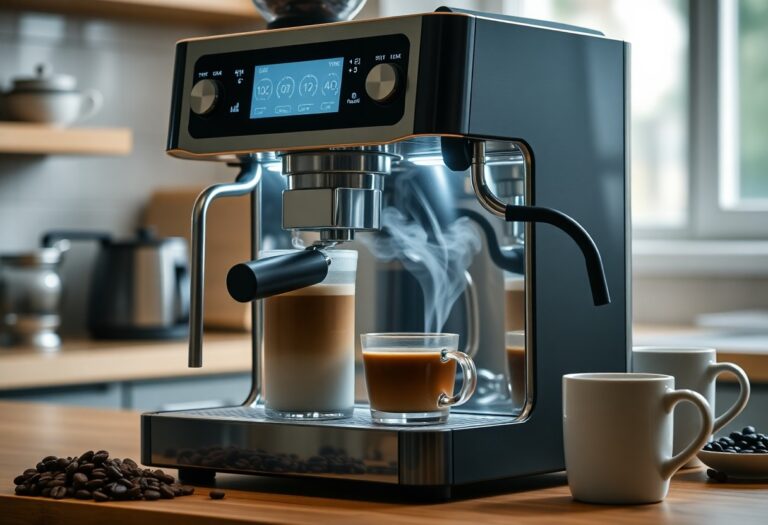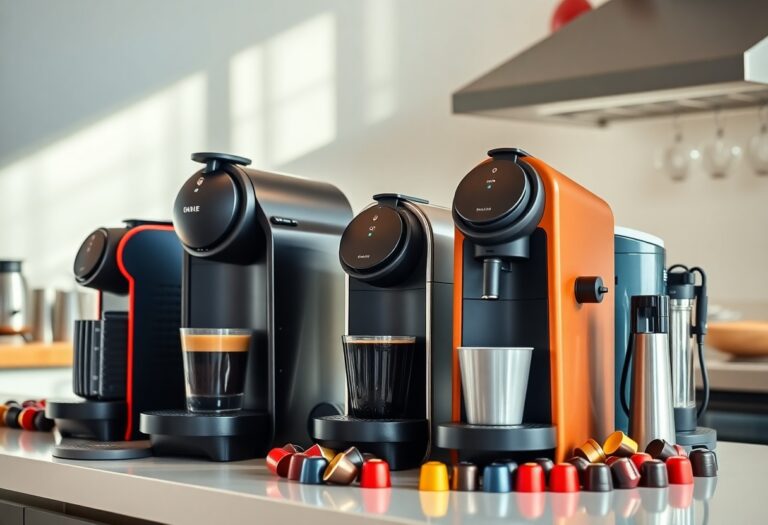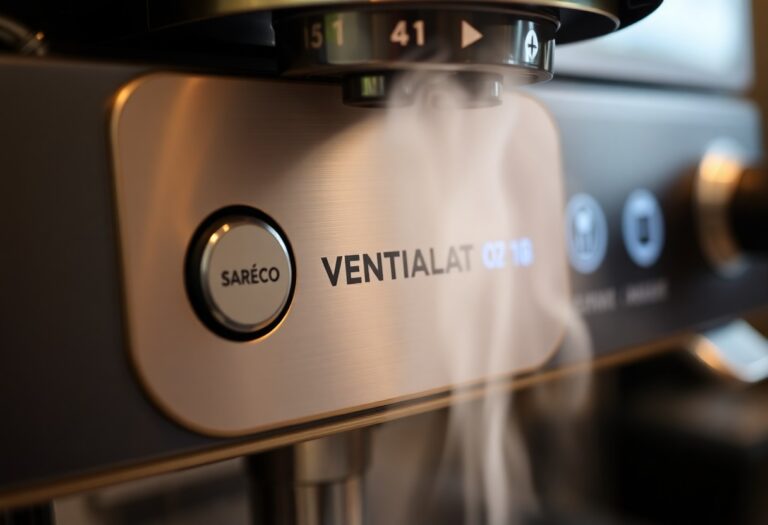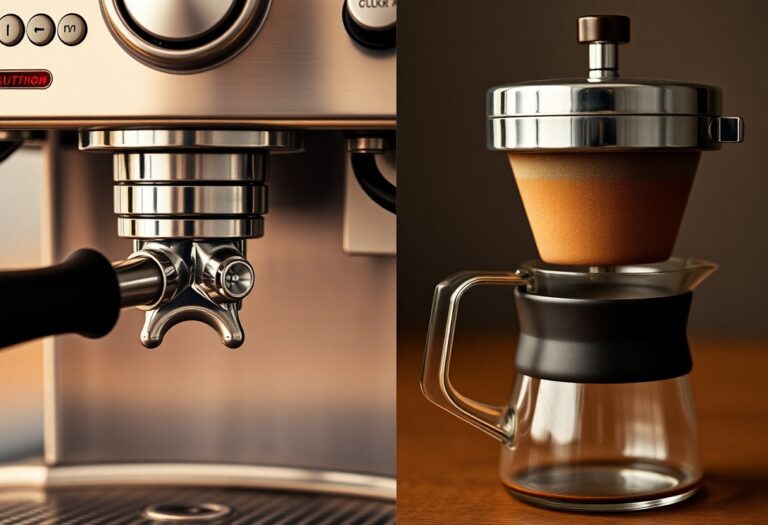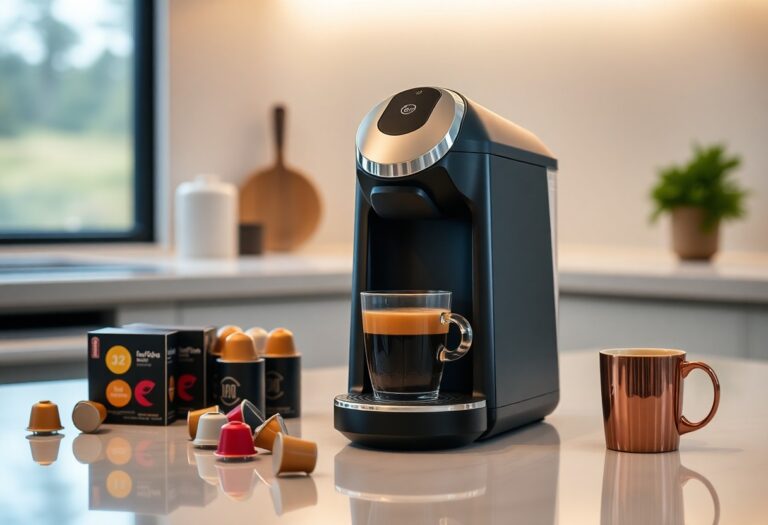How Long Does a Coffee Machine Last: Lifespan Guide
Knowing how long do coffee machines last is essential for anyone who enjoys a daily cup of coffee. Understanding your coffee machine lifespan helps you plan replacements, avoid unexpected breakdowns, and maintain the quality of your brew. Coffee maker durability varies widely depending on several key factors:
- Type of coffee machine (drip, single-serve, espresso)
- Brand reputation and build quality
- Frequency of use
- Maintenance habits, including cleaning and descaling routines
This guide on How Long Does a Coffee Machine Last: Lifespan Guide aims to provide clear insights into typical lifespans for various machines. You will learn what influences longevity, signs that indicate replacement time, and practical tips to extend the life of your coffee maker. For instance, understanding how to descale a coffee machine or specifically a Keurig coffee machine can significantly impact its longevity. Whether you are buying a new machine or looking to get the most out of your current one, this lifespan guide offers valuable information to make informed decisions about your coffee routine.
Understanding Coffee Machine Lifespan
The average lifespan of coffee machines generally ranges from 3 to 15 years. However, this lifespan can vary significantly based on the type of machine.
Factors Influencing Coffee Machine Lifespan
Several factors influence how long a coffee machine lasts:
- Brand’s manufacturing quality: The quality of materials and craftsmanship used by the manufacturer can impact the durability of the machine. For instance, brands like Jura are often regarded for their superior quality in the superautomatic segment, as discussed in this Reddit thread where users share their experiences and opinions about the brand.
- Frequency of usage: How often you use your coffee machine can affect its lifespan. Machines that are used daily may wear out faster than those used occasionally.
- Level of maintenance: Regular maintenance, such as cleaning and descaling, is crucial for extending the lifespan of your coffee machine. Neglecting these tasks can lead to buildup and damage over time.
For instance, if you own a Breville coffee machine, you might find our maintenance guide helpful. Similarly, if you have a Keurig or Cuisinart model, we have comprehensive guides on how to clean a Keurig coffee machine and how to descale a Cuisinart coffee machine, respectively.
Importance of Proper Setup and Programming
In addition to maintenance, understanding how to properly set up and program your specific model can also contribute to its longevity. For example, you can refer to our setup instructions for a Cuisinart coffee machine for more insights.
By being aware of these factors and implementing appropriate care routines, you can gain a better understanding of how long your particular coffee machine may last and take necessary actions to prolong its lifespan.
Lifespan by Coffee Machine Type
1. Drip Coffee Makers
Drip Coffee Makers have a typical lifespan ranging from 3 to 5 years. To extend their life, consider using filtered water and unplugging the machine when not in use to prevent wear and tear. Regular maintenance, such as following these cleaning instructions, can also significantly enhance the longevity of your drip coffee maker.
2. Single-Serve Machines
Single-Serve Machines, on average, last between 3 to 5 years. It is crucial to use compatible pods or cups to maintain warranty coverage and ensure optimal performance throughout its lifespan. To keep your single-serve machine in top shape, you might find these maintenance instructions helpful.
3. Espresso Machines
Espresso Machines exhibit varying lifespans based on their cost and quality. Inexpensive models generally last between 3 to 5 years, while high-end espresso machines can endure for an impressive 12 to 15 years. The heating element within these machines typically lasts around 5 to 7 years before requiring replacement.
Each type of coffee machine has its unique characteristics that influence its longevity. By understanding these differences, you can make informed decisions when selecting the ideal coffee maker for your needs.
Additionally, regardless of the type of coffee machine you choose, proper cleaning and maintenance are essential. For instance, you can learn about natural cleaning methods using vinegar for your coffee machine here. If you opt for a Hamilton Beach coffee machine, this operating guide will provide valuable insights on its usage.
Brand-Specific Durability Insights
Delonghi Magnifica
Delonghi Magnifica machines typically have an average lifespan of around 2-3 years with regular maintenance. These popular espresso machines are known for their user-friendly interfaces and quality coffee production. To ensure longevity, it is crucial to follow manufacturer guidelines for cleaning and descaling. Failure to maintain the machine adequately can lead to a shortened lifespan and decreased performance over time.
Jura
On the other hand, Jura coffee machines are renowned for their durability, often lasting between 7-10 years when properly cleaned and serviced regularly. These high-end machines boast advanced features and robust construction that contribute to their long lifespan. Regular descaling every three months and annual professional servicing can significantly extend the life of your Jura coffee machine.
Both Delonghi Magnifica and Jura machines highlight the importance of maintenance best practices in maximizing the lifespan of your coffee machine. By investing time in proper care and upkeep, you can enjoy quality brewed coffee for many years to come.
Remember, understanding the specific needs of your coffee machine model and following recommended maintenance schedules are key to ensuring its longevity. Make maintenance a priority to savor delicious coffee from your beloved machine for an extended period.
Signs It’s Time to Replace Your Coffee Machine
Coffee machines, like any appliance, can show signs of wear and tear over time, indicating the need for a replacement. Here are some key indicators that it might be time to invest in a new coffee maker:
1. Technical issues affecting performance
If your coffee machine is consistently underperforming, such as inconsistent brewing temperatures, malfunctioning buttons, or irregular brewing cycles, it may be a sign of internal mechanical problems that are difficult or costly to repair.
2. Leaks or cracks in reservoirs
Any visible leaks or cracks in the water reservoir or other parts of the coffee machine can lead to safety hazards and affect the quality of your brew.
3. Unpleasant or metallic taste in brewed coffee
If you notice an off-putting taste or smell in your coffee that persists even after cleaning, it could be a sign of internal contamination or deterioration of components affecting the flavor.
4. Prolonged brewing times
A significant increase in brewing time compared to when the machine was new may indicate issues with heating elements or pump efficiency that hinder optimal performance. This might also be a good time to consider exploring different brewing techniques for better results.
5. Persistent maintenance needs
Constant breakdowns requiring frequent repairs and adjustments can be a sign that the machine is reaching the end of its useful life. This could also imply that regular maintenance efforts like descaling are becoming less effective.
6. Difficult scale buildup
If scale buildup from hard water is challenging to remove despite regular descaling efforts, it may indicate internal damage that affects functionality. In such cases, it might be worth looking into specific cleaning methods that could alleviate this issue.
7. Outdated design and features
As technology advances, newer models offer improved features and functionalities. If your current machine lacks modern conveniences like programmable settings, adjustable brew strengths (you might want to check out how much coffee to put in a coffee machine for perfect ratios), or energy-saving modes, an upgrade may be worthwhile for enhanced user experience.
How to Extend the Life of Your Coffee Machine
Coffee machine maintenance is crucial to ensure its longevity and optimal performance. Here are some essential tips to help you extend the lifespan of your beloved coffee maker:
1. Regular Cleaning
Make sure to clean your coffee machine regularly, following the manufacturer’s guidelines. This can prevent the buildup of coffee residues and oils that can affect the taste of your brew. For instance, if you own a Black and Decker model, it’s important to follow specific cleaning procedures tailored for that brand.
2. Descaling Schedule
Descaling is a vital maintenance task that helps remove mineral deposits from the internal components of your coffee machine. Follow a descaling schedule recommended by the manufacturer to keep your machine running smoothly.
3. Filtered Water
Using filtered water in your coffee machine can prevent mineral buildup and extend the life of the internal components. It also contributes to a better-tasting cup of coffee by removing impurities from the water.
4. Unplugging When Not in Use
To reduce wear and tear on your coffee machine, consider unplugging it when not in use. This simple step can help prolong the lifespan of your machine and save energy.
By incorporating these maintenance tips into your routine, you can enjoy delicious coffee from your machine for years to come. Regular care and attention will not only extend its lifespan but also ensure a consistent brewing experience every time.
If you’re unsure about how to operate specific models like Keurig, Ninja, or even another Black and Decker model, there are comprehensive guides available online that can provide you with all the necessary information.
Benefits of Upgrading to a New Coffee Machine
Enhancing your coffee experience goes beyond extending the life of your current machine. Consider the benefits of upgrading to a new coffee maker:
1. Enhanced Coffee Quality and Flavor Consistency
Newer coffee machines, like French press coffee machines, often come equipped with advanced brewing technologies that can extract more flavor from your beans, resulting in a richer and more nuanced taste profile. Consistent brewing temperatures and extraction processes contribute to a better-tasting cup of coffee every time.
2. Faster Brewing Times with Modern Technology
Upgrading to a new coffee machine can significantly reduce your wait time for that morning pick-me-up. Advanced models boast faster heating elements, improved water flow systems, and programmable features that streamline the brewing process without compromising on quality. For instance, certain Nespresso machines are known for their speed and efficiency.
3. Reduced Maintenance Needs and Lower Risk of Breakdowns
Older coffee machines may require more frequent maintenance, such as descaling, cleaning, and part replacements. By upgrading to a new model, you can enjoy improved durability, reliability, and fewer instances of breakdowns or malfunctions. For example, learning how to clean a Mr. Coffee machine or a Cuisinart coffee machine can be tedious but necessary for older models. Investing in a newer machine can save you time and money in the long run by minimizing repair costs and prolonging the lifespan of your appliance.
In addition to these benefits, upgrading also opens up the possibility of exploring manual brewing methods which can offer unique flavors and experiences not achievable with standard machines.
Conclusion
Proper care, such as using the right amount of vinegar for cleaning, and timely replacement decisions are crucial for an optimal coffee experience. Make informed choices based on your specific type of machine and usage needs.
Choosing the right coffee machine and understanding its lifespan guide are essential steps in ensuring you enjoy your daily brew to the fullest. By following maintenance tips, recognizing signs for replacement, and considering the benefits of upgrading, you can savor every cup with quality and convenience. Remember, a well-maintained coffee machine is the key to a consistently delicious coffee experience.


